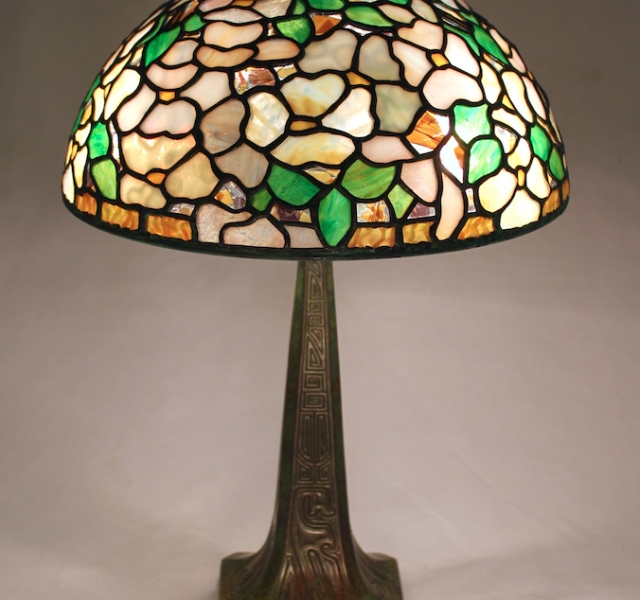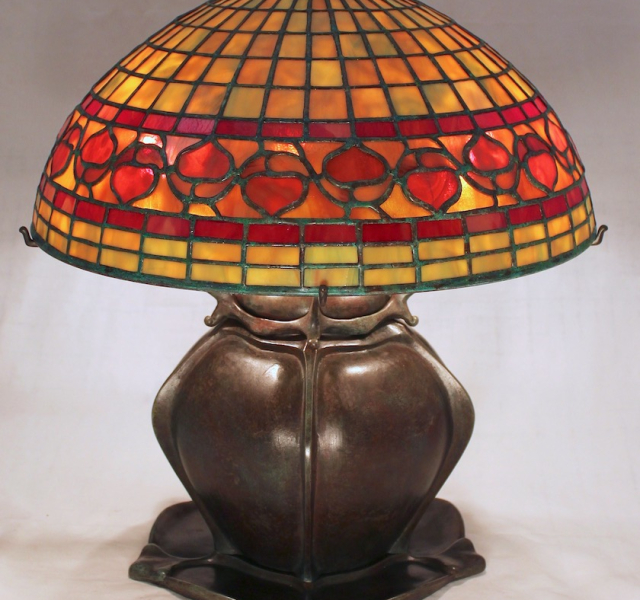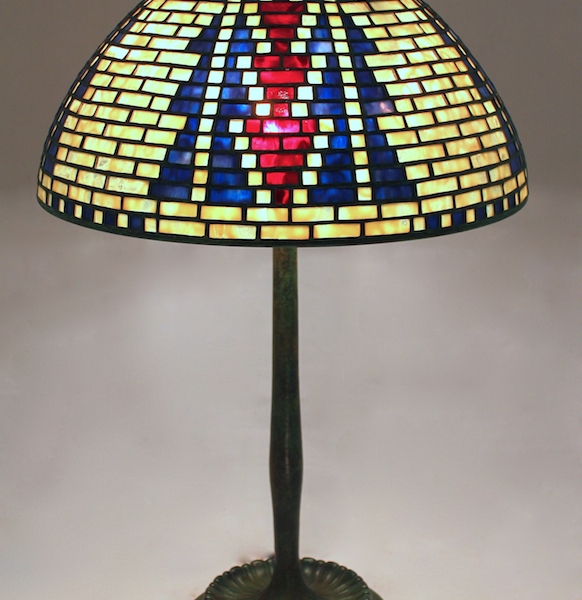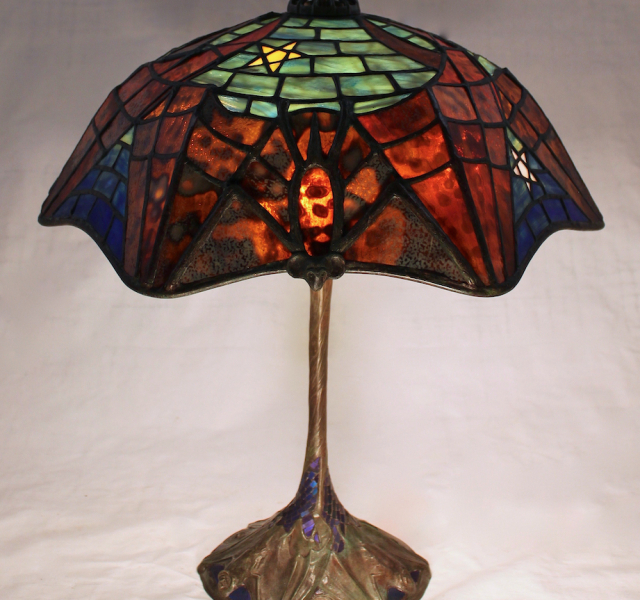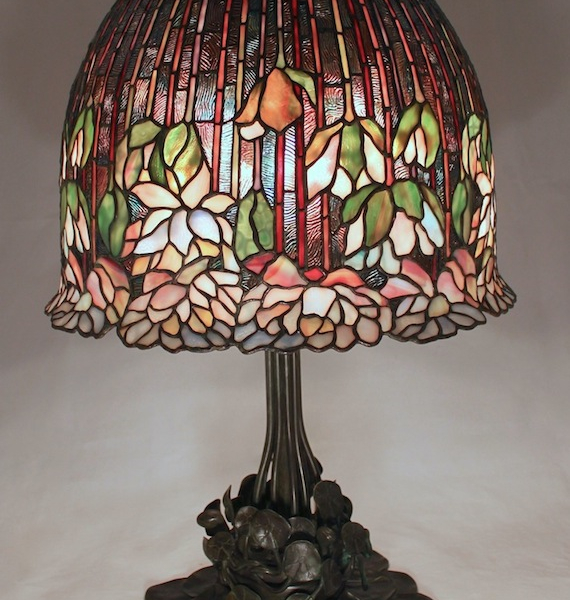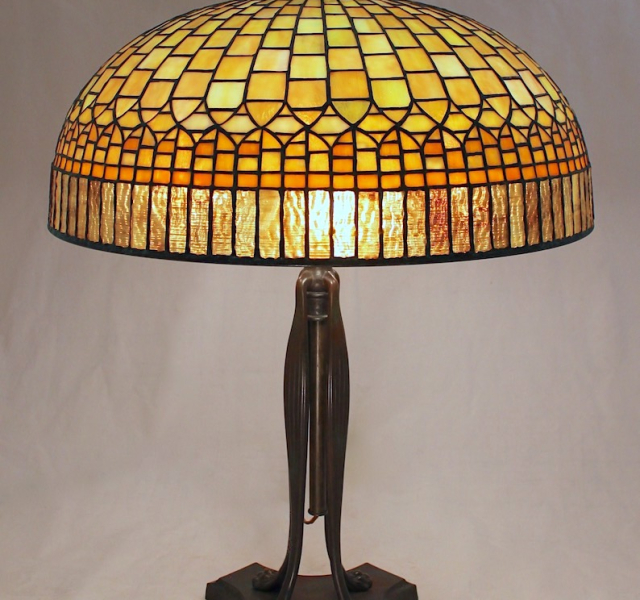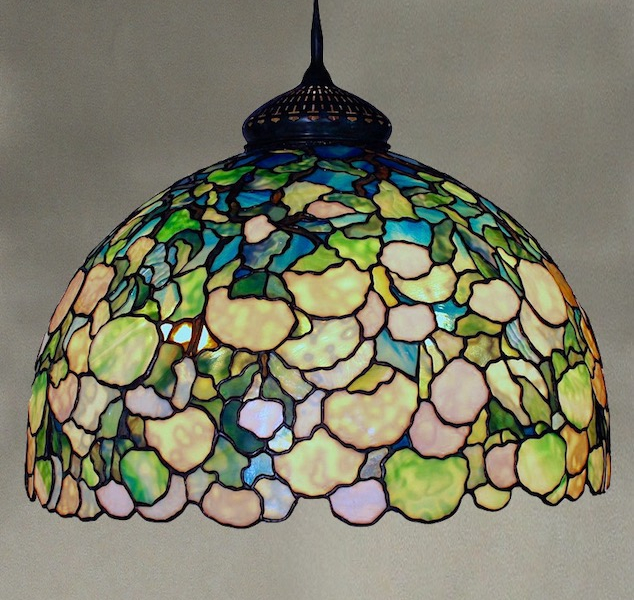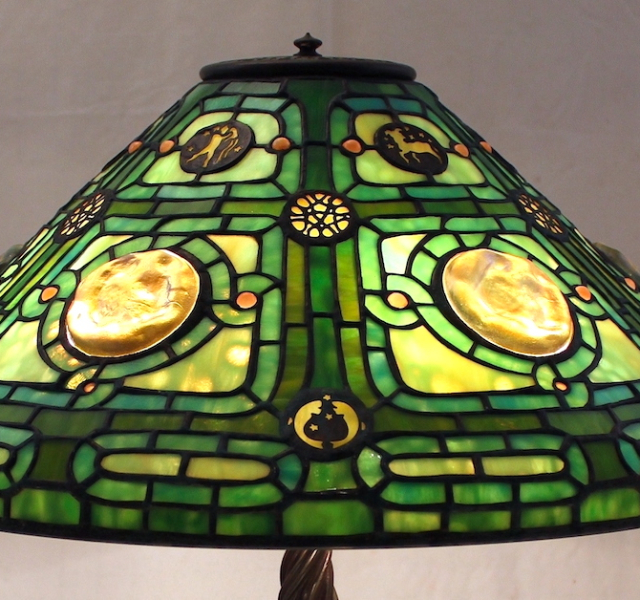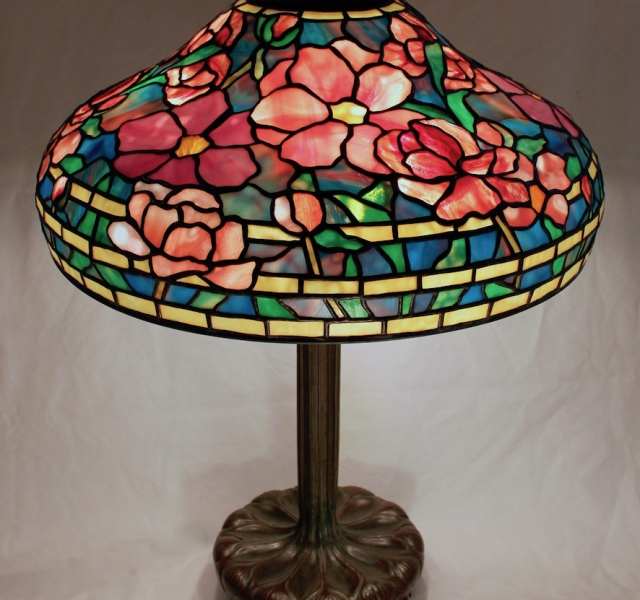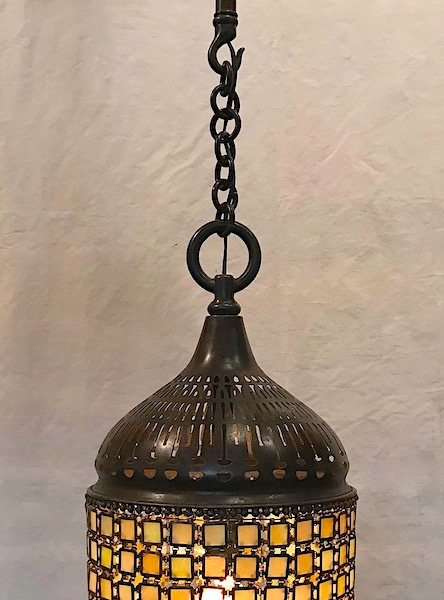This 12″ Dogwood shade was commissioned by a client in Texas in 2015. The white flowers are tinged with amber, yellow and pink, while the leaves are a fresh spring green. A fracture/streamer glass background keeps the shade light and airy. The shade is shown on the beautifully detailed Chinese base (16″ tall).
Blog
16″ Acorn
We recently completed projects for two separate clients. A local client commissioned this 16″ Acorn shade for use with an antique lamp base in their collection. With a strong amber background and accents of red and rust, this shade has a warm glow. The impressive Bell Pepper base was commissioned by an out of state…
Lamp of the Week: 16″ Indian Basket
The 16″ Indian Basket shade is a Century Studios adaptation of a 24″ Tiffany Studios chandelier fixture. Commissioned in 2013 by a client in North Carolina, the design weaves patterns of deep blue and red against the off white body of the basket. The shade is shown on the Grooved base.
17″ Bat Lamp
The 17″ Bat is one of Tiffany Studios most unique shade designs. This sculptural shade consists of three bats with outstretched wings flying against a nighttime sky. The shape of the shade mimics the bat wings, lending an air of drama and mystery to the design. Two evening stars appear in the sky. The bats…
Lamp of the Week: 18″ Flowering Lotus Lamp
The 18″ Flowering Lotus Lamp is one of the most detailed and technically challenging lamps we offer. With almost 1800 individual pieces of glass within the confines of a relatively small shade, this piece must be meticulously hand crafted and assembled. Commissioned in 2017 by a California client, the coloration for this shade was inspired…
22″ Curtain Border
The 22″ Curtain Border is a geometric pattern with personality. The top of the shade is comprised of an offset geometric design while the lower portion has a row of glass fringe. Tiffany Studios often created shade patterns in various sizes for maximum versatility, with this shade being a smaller version of the 24″ Curtain…
Lamp of the Week: 24″ Snowball
The 24″ Snowball is the deepest Tiffany Studios shade design we offer. While the shade is occasionally used as a large table lamp, its generous proportions are best suited for use as a floor lamp or chandelier. The irregular lower edge accentuates the impression of a large specimen with its branches bent by the weight…
New Shade Design: 20″ Zodiac
Century Studios is pleased to introduce a new shade design to our line of reproduction Tiffany lamps. The 20″ Zodiac is a cone shaped shade that features the twelve signs of the zodiac. Zodiac symbols were a popular design element and adorned many items created by Tiffany Studios including mosaic panels, desk set items and lamps….
Lamp of the Week: 18″ Peony
The 18″ Peony is one of the most popular Tiffany shade patterns we offer. The large flowers dramatically cover the surface of the turban shaped shade, while the multiple horizontal borders provide structure to the design. This cheerful shade has a wide ranging variety of pink flowers set against a lively blue background. This lamp…
Chain Mail Lantern
One of Tiffany Studios most unique lighting concepts is the Chain Mail Lantern. Moorish in inspiration, a large reticulated onion dome cap supports a flowing curtain of glass. Constructed completely by hand, each piece of glass is encased in a metal framework and each unit is joined to the others by small loops in a…

